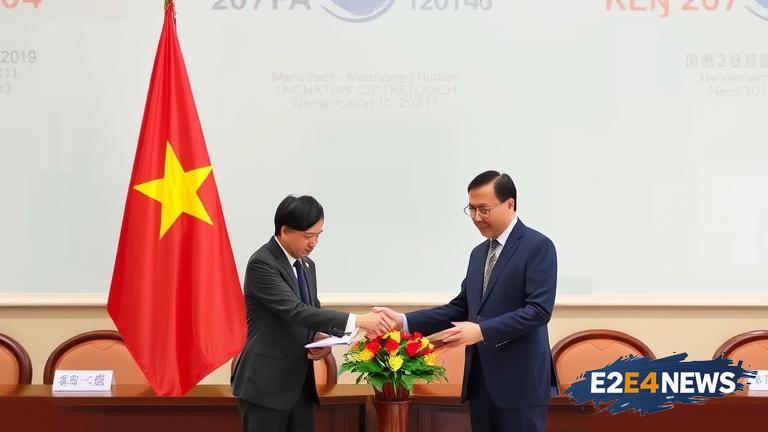Vietnam and Hungary have been actively promoting human resource training as a key aspect of their bilateral cooperation. This collaboration aims to enhance the skills and knowledge of Vietnamese and Hungarian workers, thereby contributing to the economic growth and development of both countries. The two nations have identified human resource training as a vital area of cooperation, recognizing its potential to drive innovation, improve productivity, and increase competitiveness. To achieve this goal, Vietnam and Hungary have established various programs and initiatives, including vocational training, scholarships, and exchange programs. These initiatives provide opportunities for Vietnamese and Hungarian students, researchers, and professionals to acquire new skills, share knowledge, and gain experience in each other’s countries. The cooperation in human resource training is also expected to foster stronger people-to-people ties between Vietnam and Hungary, promoting mutual understanding and friendship. Furthermore, the collaboration is likely to contribute to the development of key sectors, such as information technology, healthcare, and renewable energy, which are essential for the sustainable growth of both economies. The Vietnamese government has emphasized the importance of human resource development, recognizing that a skilled and knowledgeable workforce is crucial for the country’s economic success. Hungary, on the other hand, has a strong tradition of vocational training and education, which has enabled the country to develop a highly skilled workforce. By combining their strengths and expertise, Vietnam and Hungary can create a powerful partnership that benefits both nations. The cooperation in human resource training is also in line with the European Union’s strategies for human resource development, which aim to promote economic growth, social cohesion, and environmental sustainability. In addition, the collaboration between Vietnam and Hungary is expected to contribute to the implementation of the United Nations’ Sustainable Development Goals, particularly Goal 4, which focuses on quality education, and Goal 8, which aims to promote decent work and economic growth. Overall, the promotion of human resource training is a key aspect of the Vietnam-Hungary partnership, which has the potential to drive economic growth, improve living standards, and enhance the overall well-being of the people in both countries. The cooperation is also a testament to the strong and enduring friendship between Vietnam and Hungary, which has been built on mutual respect, trust, and a shared commitment to promoting peace, stability, and prosperity in the region. As the two countries continue to work together, they are likely to identify new areas of cooperation and explore innovative ways to promote human resource development, which will ultimately contribute to the achievement of their shared goals and aspirations. In conclusion, the Vietnam-Hungary cooperation in human resource training is a significant development that has the potential to drive economic growth, improve living standards, and enhance the overall well-being of the people in both countries.
